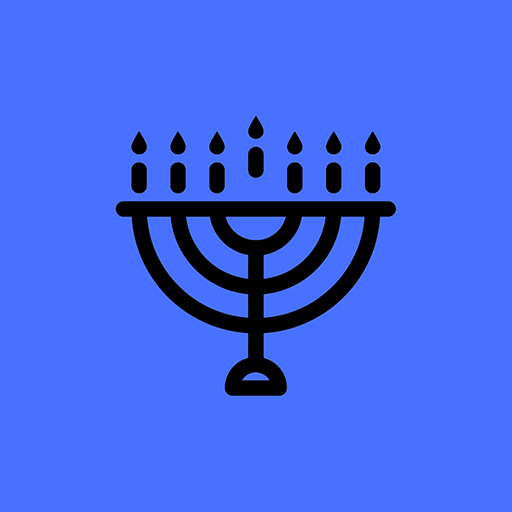 |
Index
|
Index

A pesach plate with traditional symbols of the Jewish Passover and four glasses of red kosher wine.
1 The LORD said to Moses and Aaron in the land of Egypt: 2 This month shall mark for you the beginning of the months; it shall be the first of the months of the year for you. 3 Speak to the whole community of Israel and say that on the tenth of this month each of them shall take a lamb to a family, a lamb to a household. 4 But if the household is too small for a lamb, let him share one with a neighbor who dwells nearby, in proportion to the number of persons: you shall contribute for the lamb according to what each household will eat. 5 Your lamb shall be without blemish, a yearling male; you may take it from the sheep or from the goats. 6 You shall keep watch over it until the fourteenth day of this month; and all the assembled congregation of the Israelites shall slaughter it at twilight. 7 They shall take some of the blood and put it on the two doorposts and the lintel of the houses in which they are to eat it. 8 They shall eat the flesh that same night; they shall eat it roasted over the fire, with unleavened bread and with bitter herbs. 9 Do not eat any of it raw, or cooked in any way with water, but roasted—head, legs, and entrails—over the fire. 10 You shall not leave any of it over until morning; if any of it is left until morning, you shall burn it.
11 This is how you shall eat it: your loins girded, your sandals on your feet, and your staff in your hand; and you shall eat it hurriedly: it is a passover offering to the LORD. 12 For that night I will go through the land of Egypt and strike down every first-born in the land of Egypt, both man and beast; and I will mete out punishments to all the gods of Egypt, I the LORD. 13 And the blood on the houses where you are staying shall be a sign for you: when I see the blood I will pass over you, so that no plague will destroy you when I strike the land of Egypt. (Exodus 12:1-13 (Tanakh))
16 You shall celebrate a sacred occasion on the first day, and a sacred occasion on the seventh day; no work at all shall be done on them; only what every person is to eat, that alone may be prepared for you. 17 You shall observe the [Feast of] Unleavened Bread, for on this very day I brought your ranks out of the land of Egypt; you shall observe this day throughout the ages as an institution for all time. 18 In the first month, from the fourteenth day of the month at evening, you shall eat unleavened bread until the twenty-first day of the month at evening. 19 No leaven shall be found in your houses for seven days. For whoever eats what is leavened, that person shall be cut off from the community of Israel, whether he is a stranger or a citizen of the country. 20 You shall eat nothing leavened; in all your settlements you shall eat unleavened bread. (Exodus 12:16-20 (Tanakh))
6 But there were some men who were unclean by reason of a corpse and could not offer the passover sacrifice on that day. Appearing that same day before Moses and Aaron, 7 those men said to them, “Unclean though we are by reason of a corpse, 6 But there were some men who were unclean by reason of a corpse and could not offer the passover sacrifice on that day. Appearing that same day before Moses and Aaron, 7 those men said to them, “Unclean though we are by reason of a corpse, why must we be debarred from presenting the LORD's offering at its set time with the rest of the Israelites?" (Numbers 9:6-7 (Tanakh))
“Unclean though we are by reason of a corpse, why must we be debarred from presenting the LORD's offering at its set time with the rest of the Israelites?" (Numbers 9:7b (Tanakh))
The original ordinance had been explicit regarding its observance; there was no ambiguity; there was no room for compromise. Hence Moses was presented with a baffling question.
The Covenant has a procedure in place for dealing with baffling questions.
Moses followed procedure to the letter, and discussed the problem with the Lord:
8 Moses said to them, “Stand by, and let me hear what instructions the LORD gives about you.” (Numbers 9:8 (Tanakh))
In accordance with baffling procedures, the Lord spoke to Moses, and explained the Passover Amendment to him:
9 And the LORD spoke to Moses, saying: 10 Speak to the Israelite people, saying: When any of you or of your posterity who are defiled by a corpse or are on a long journey would offer a passover sacrifice to the LORD, 11 they shall offer it in the second month, on the fourteenth day of the month, at twilight. They shall eat it with unleavened bread and bitter herbs, 12 and they shall not leave any of it over until morning. They shall not break a bone of it. They shall offer it in strict accord with the law of the passover sacrifice. 13 But if a man who is clean and not on a journey refrains from offering the passover sacrifice, that person shall be cut off from his kin, for he did not present the LORD's offering at its set time; that man shall bear his guilt.
14 And when a stranger who resides with you would offer a passover sacrifice to the LORD, he must offer it in accordance with the rules and rites of the passover sacrifice. There shall be one law for you, whether stranger or citizen of the country. (Numbers 9:9-14 (Tanakh))
The Lord instructed that alternative arrangements be put in place for those genuinely unable to offer the Passover sacrifice.
This amendment was incorporated into the Covenant. And it continues to apply today.
The provision of alternative arrangements for those doing essential work on the Sabbath. For example, those defiled by a corpse or those on a long journey:
9 And the LORD spoke to Moses, saying: 10 Speak to the Israelite people, saying: When any of you or of your posterity who are defiled by a corpse or are on a long journey would offer a passover sacrifice to the LORD, 11 they shall offer it in the second month, on the fourteenth day of the month, at twilight. They shall eat it with unleavened bread and bitter herbs, 12 and they shall not leave any of it over until morning. They shall not break a bone of it. They shall offer it in strict accord with the law of the passover sacrifice. (Numbers 9:9-12 (Tanakh))
Notice how the Lord extends the amendment beyond those defiled by a corpse to include those on a long journey. This sets the precedent for today. We live in a complex, fast moving society. The need to provide alternative arrangements for those unable to offer the Passover sacrifice, is urgently needed.
[Essay: The historical importance of the Passover Sacrifice. To what extent does contemporary observance capture the spirit of the Passover Sacrifice?]
Version: 13-Feb-2024